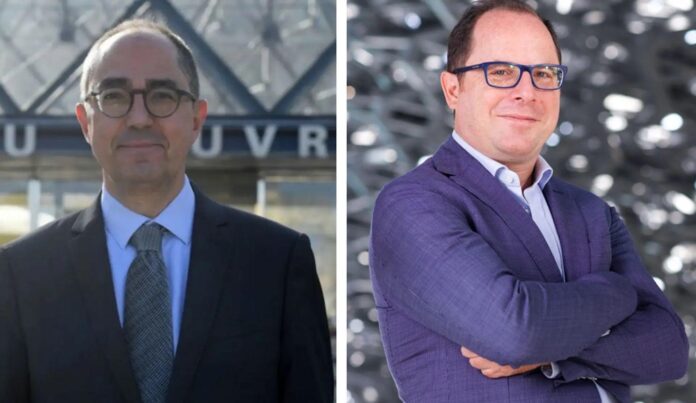The antiquities trafficking charges against the former president of the Louvre, Jean-Luc Martinez, and curator Jean-François Charnier, have been upheld by a chamber of the Paris court of appeal. The decision came as a surprise, as the general prosecutor had asked to cancel their indictments, considering that the investigations have shown “no serious or consistent suspicions” against the two men. Such an outcome is very rare, as it represents a serious blow to the investigating judge.
The appellate judges announced their decision on 3 February, but only made their reasons public six days later. They consider that all the rules have been respected by the investigators of the central office against art trafficking, including when the curators were kept in custody for several days to be interviewed. They insist that they were both “closely tied” to the process of acquisitions of the Louvre Abu Dhabi, which were concluded “in spite of difficulties regarding the origins” of some Egyptian antiquities. Martinez was charged for “complicity“ and Charnier for “having facilitated” the acquisitions.
According to the newly released court document, the French dealers who sold these items, Christophe Kunicki and Richard Semper—charged in 2020 with fraud and money laundering—confessed that, in some cases, they had forged documents in order to “fill the gaps“ of the provenances. But Martinez and Charnier have pointed out that the first doubts about works acquired via Kunicki and Semper were raised in 2019, years after the acquisitions, when it appeared that they were also the sellers of a golden sarcophagus that the Metropolitan Museum had to return to Egypt.
The 40-page ruling of the French chamber summarises the investigation’s incriminating reports, but Charnier’s lawyer, Corinne Hershkovitch, says she “regrets that the magistrates have relied on these reports without having thoroughly checked the exculpatory testimonies and pieces of evidence”. She maintains that the investigation made the mistake of “putting on the same level the traffickers and the curators, who were their victims”.
The chamber also refused to drop the evidence against the German Lebanese dealer Roben Dib provided by the head of the antiquities trafficking unit of the Manhattan District Attorney Office, Matthew Bogdanos. Dib’s lawyer, Sébastien Schapira, says these pieces of evidence were not transmitted under the 1998 treaty between the US and France on mutual assistance on criminal matters, and should therefore be annulled. But the chamber says that the communication of the files was covered by magistrates in Paris and New York and “it is a necessity for investigators to communicate freely in such a widespread international investigation, which sprawled to the Middle East and Europe, including Germany, Switzerland, the Emirates and Qatar”.
Martinez and Charnier both said they plan to appeal to France’s High Court.

























